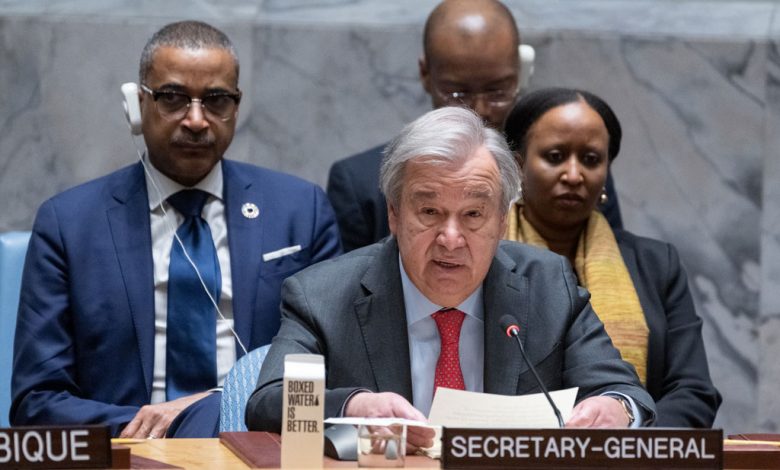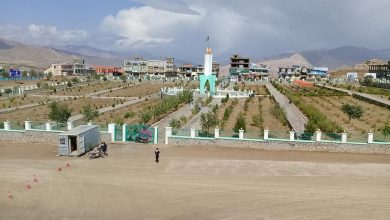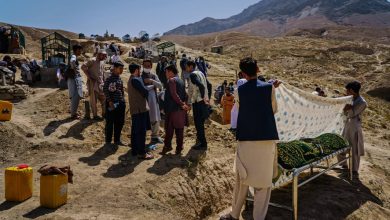
UN Secretary-General: Afghanistan Faces Severe Humanitarian Budget Shortfall
Bayan News – A quarterly report by António Guterres, the United Nations Secretary-General, highlights that Afghanistan has been grappling with a severe humanitarian budget shortfall this year.
The report, set to be reviewed on Thursday evening, December 12, at the UN Security Council meeting, addresses various aspects of Afghanistan, including security incidents, armed attacks, civilian casualties, and the humanitarian situation.
According to the report, approximately 23 million people in Afghanistan are currently facing serious humanitarian challenges, including food shortages, malnutrition, and displacement.
The Secretary-General noted that as of November 11, 2024, only 37.5% of the requested $3.06 billion humanitarian budget for Afghanistan had been funded, resulting in a sharp decline in available resources.
Guterres further added that restrictions and interventions by the Taliban have impacted humanitarian activities in Afghanistan and called on the group to cease such interference. He emphasized the UN and its partners’ commitment to delivering services to the Afghan people and urged the international community to continue its support for the country.
39% Increase in Afghanistan-Related Incidents
Guterres’s report shows a 39% increase in Afghanistan-related security incidents compared to the previous year. Over the past few months, armed opponents of the Taliban have carried out 81 attacks.
The report indicates that from August 1 to October 31, 2024, a total of 2,510 security incidents were recorded in Afghanistan, reflecting a 39.6% increase compared to the same period last year.
Despite the rise in attacks by armed opponents, the report notes that these groups have not posed a significant challenge to the Taliban’s territorial control.
Guterres stated that the National Resistance Front carried out 56 attacks, the Afghanistan Freedom Front 18 attacks, the People’s Power Front one attack, and the Afghanistan Freedom Movement one attack, with five other attacks attributed to unidentified actors.
Civilian Casualties
The report highlights that suicide bombings and improvised explosive devices (IEDs) have been the primary causes of civilian casualties in recent months.
The Secretary-General noted that over the past three months, IED attacks have killed at least 16 civilians and injured 71 others.
According to Guterres, suicide bombings and IED attacks, predominantly claimed by the Islamic State-Khorasan Province (ISKP), have targeted Taliban officials and the Shia community.
The report provides specific examples, including an attack in the Dasht-e-Barchi area of Kabul on August 11 that killed one Hazara civilian and injured 13 others; an August 22 explosion in Nangarhar province targeting a Taliban police commander for Nuristan province, which killed six boys and injured four men; a September 2 IED attack in Kabul that killed at least six men and one woman and injured over 29 civilians; and a September 12 attack on the border between Daikundi and Ghor provinces that killed 14 people and injured four others, all of whom were Hazara Shia.
Unexploded ordnance remains a significant threat, particularly to children, causing civilian casualties. During the reporting period, at least 16 civilians were killed and 35 others injured in incidents involving unexploded ordnance.
Youth from Southern Afghanistan: Unfortunately, Our Voices Are Not Heard







